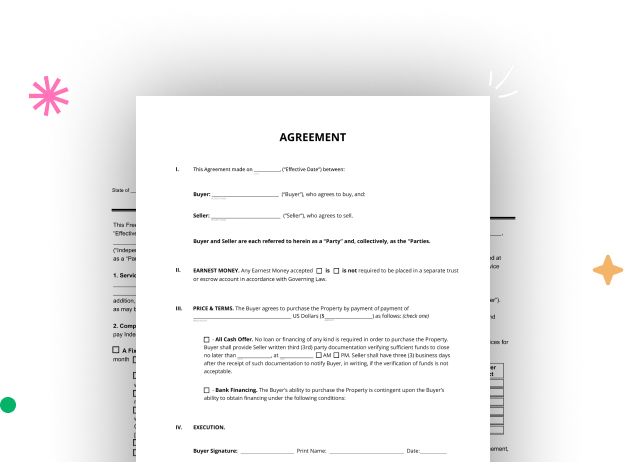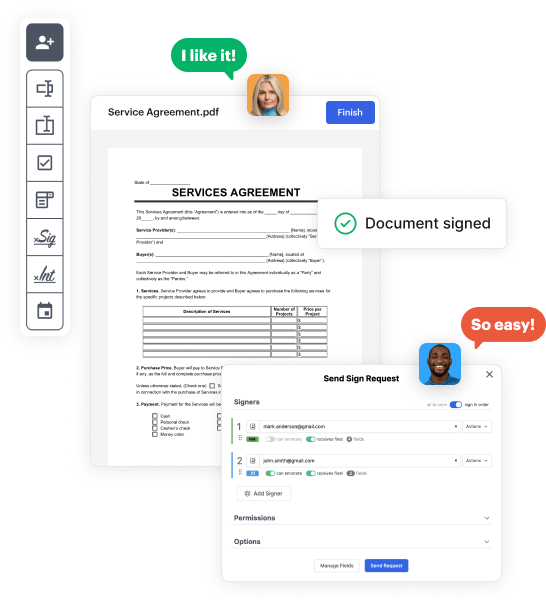

Visit the DocHub website and sign up for the free trial. This gives you access to every feature you’ll require to build your Arkansas Landlord Tenant Legal Form with no upfront cost.
Log in to your DocHub account and navigate to the dashboard.
Hit New Document in your dashboard, and choose Create Blank Document to create your Arkansas Landlord Tenant Legal Form from scratch.
Add different elements such as text boxes, radio buttons, icons, signatures, etc. Arrange these fields to match the layout of your form and assign them to recipients if needed.
Rearrange your form in seconds by adding, repositioning, deleting, or combining pages with just a few clicks.
Turn your newly designed form into a template if you need to send many copies of the same document repeatedly.
Send the form via email, share a public link, or even post it online if you want to collect responses from more recipients.